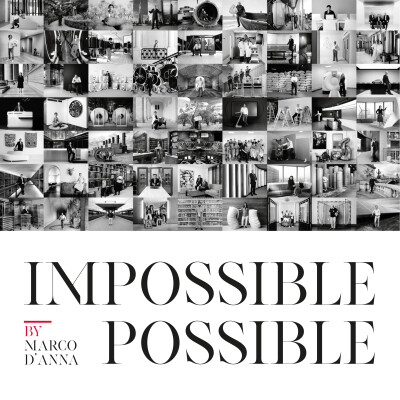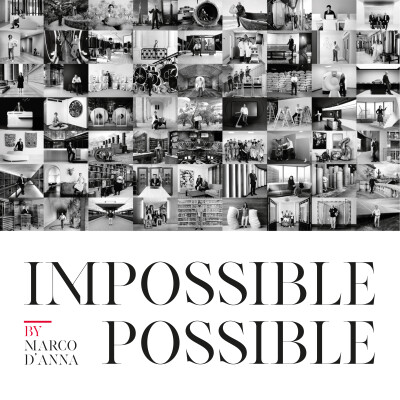Alexandra Dumont NuberyMy father and mother had created their consulting firm, and, in a sort of madness, they agreed to take over a company that was not at all in their field of competence. Starting in 2011, they decided to form a group, to acquire struggling companies in the metallurgy sector. We even became, almost a small M&A firm since we were acquiring one to two companies per year between 2011 and 2017. So, we grew a lot. And then, we refocused a lot, now, on our core business which is exceptional metallurgy. Running a family business is always something I have felt to be quite powerful. That being said, I think you must be able to be in a relationship that is almost hierarchical, even within the family circle. And we are fortunate, with my father and mother, to be extremely complementary. We all three have different appetites and skills. Thus, we were able to quickly find balances where I could also find my place. In my opinion, this is the advantage of having a fairly generalist background in studies. We are able, afterwards, to learn quite different skills, if we have the curiosity to do so. Things ultimately happened in a fluid but rapid manner. I think one of the particularities of my career path is that almost every year, or every two years, I made my scope evolve. That being said, there was a key moment when everything finally came together. In 2019, I took my first management position. I realized that the status of CEO required me to evolve on several subjects. And I take myself in hand and decide, I want to perform well in this managerial role. I implemented several actions. I think this is what allowed the rest to be quite fluid and for me to subsequently take over legal, human resources, purchasing, etc. And this while increasing the workload and the scope, without 'losing my mind', while remaining effective. In 2019, when I took this first management role, I realized that it was different compared to my position as financial controller, for example. There, I measured this change. Then, the rest could be fluid because I was able to quickly implement actions to take on this leadership role. The stakes of becoming a CEO at thirty-two years old are multiple. The first is legitimacy. I was fortunate to have been somewhat pushed internally, particularly by the members of the executive committee, who, for a few months, a few years, promoted the idea that I take this position. So, I did not experience the 'teleportation syndrome'. I had already been in the company for ten years. After that, you also must consider the dimension of the position and all the stakes that come with it, including in terms of posture. And I was fortunate to have a multi-phase CEO journey. It was very reassuring because if you must take everything at once, both the responsibility of the posture, the stakes, the P&L, and a whole bunch of other things, it's too much. And I finally think that when you work with teams that have been there for twenty to thirty years, you must be humble, accept that you do not have the same knowledge as them, while pushing for change. This is essential. I had followed coaching on both professional and personal dimensions. You also have to accept working on your sources of anxiety, posture, and self-confidence. It's not always simple. You also have to accept your vulnerabilities. The main key for me has been to remain myself. I am naturally smiling, I love others, and I think my colleagues feel that. I do not think you need to invent a character, like what you read in books, the figure of a CEO who works in top companies. Here we are also an industrial company, but on a human scale. I know almost all my colleagues, so I think we can also have a posture that is a bit different. And in any case, that is the approach I have chosen, and I feel comfortable with my teams. With my father, we are very complementary in our appetites. He is very analytical, with a part of intuition but based on rather factual elements, and with a capacity to be more in vision. I am more someone who has the pragmatism of daily life and the action plan that unfolds. I have the rigor to ensure that things are done on time. And today, I think it is really this complementarity that allows us to deliver something very effective. And while having this medium-long term vision, which is the DNA of a family business and a profession that is as old as metallurgy, we must think about every investment. We need to think about ten, fifteen, twenty years when investing in a foundry. It is important to have this dual vision. Because in companies like ours, you always have to position yourself between the short and long term. Having succeeded in leading an industrial group to a level of excellence, both in terms of CSR and financial performance, in a complicated sector like metallurgy, is quite a significant source of pride. We sometimes forget this because we are immersed in daily life, but when I take two minutes to step back, it is still an extraordinary journey. And it is fifteen years of history of growth, difficulties, successes, and incredible victories. And this is a reason to be proud. I operate on the principle that every encounter, every person I meet for the first time, will be more of an opportunity than a risk. And so, naturally, I am in this notion of trust, almost structural, which sets in place even before starting the relationship. That is a bit of my life philosophy. And I think that it has helped me tremendously to ultimately develop quality interactions, to seize opportunities in my life as well. And I am lucky because this trust has been quite intact throughout my life, both professionally and personally. I hope that it will continue like this, that I will be able maintain this philosophy. But it is true that it is very strong in me, and it shows quite a bit in our teams, we work with people who have great loyalty, who hold positions with a lot of seniority. But we are also able to welcome these new generations, and to trust them. Trust is a word that carries a lot of weight for me.




